- Description
- FAQ
- Updates
- Comments
In Rulindo District, a small community tucked away in the heart of Rwanda, underprivileged children face daily struggles that most of us can hardly imagine. Limited access to education, inadequate clothing, and insufficient food resources are just a few of the challenges that these young souls endure. However, there is hope. Through the collective efforts of dedicated individuals and organizations, these children are being given a chance at a brighter future.
With a focus on education, clothing, and food, the initiative in Rulindo District aims to provide comprehensive support to these vulnerable children. By giving them the tools they need to succeed academically, enhancing their physical well-being through appropriate clothing, and ensuring they have access to nutritious meals, the project is transforming lives one child at a time.
Through the power of education, these underprivileged children are breaking the cycle of poverty and gaining the skills and knowledge they need to build a better future for themselves and their communities. Join us as we delve into the heartwarming stories of these resilient young individuals and explore the impact of this transformative initiative in Rulindo District.
In Rulindo District, the challenges faced by underprivileged children are staggering. Many of these young individuals come from families that struggle to meet basic needs, which directly impacts their ability to thrive both academically and socially. Limited financial resources mean that families often prioritize immediate survival over long-term investments in education, leading to a cycle of poverty that is difficult to escape. As a result, many children are forced to drop out of school to help support their families, missing out on critical learning opportunities that could change their futures.
Additionally, the infrastructure in Rulindo District poses significant obstacles to education. Schools may be located far from where these children live, making the journey perilous, especially for those who lack proper footwear or clothing. This geographical barrier coupled with a lack of transportation options can deter attendance and diminish the likelihood of academic success. Furthermore, overcrowded classrooms and a shortage of qualified teachers amplify the difficulties, leaving students without the attention and guidance they desperately need.
The emotional and psychological toll on these children can be profound. Many grapple with feelings of inadequacy and hopelessness, convinced that their circumstances define their potential. Bullying and stigmatization due to their socioeconomic status can further erode their self-esteem, making it challenging for them to engage fully in educational activities. This environment creates a vicious cycle where underprivileged children in Rulindo District struggle not only against external barriers but also internalized beliefs that they cannot overcome their circumstances.
Education serves as a key driver for change, particularly for underprivileged children. It is not just about acquiring knowledge; it is about empowering children to break free from the constraints of poverty and build a better life for themselves. Access to quality education enables children to develop critical thinking skills, gain confidence, and cultivate a sense of agency over their lives. This empowerment is essential in fostering resilience and encouraging young people to pursue their dreams, regardless of their background.
Moreover, education is instrumental in creating opportunities for economic advancement. Children who receive a solid education are more likely to secure stable and well-paying jobs as adults. In Rulindo District, where employment opportunities may be limited, education becomes a vital pathway to economic independence. By equipping underprivileged children with the skills necessary for the workforce, they can break the cycle of poverty not only for themselves but for their families and communities as well.
Lastly, education has the power to transform entire communities. When children are educated, they grow into informed citizens who can contribute positively to society. They are more likely to engage in civic activities, advocate for social justice, and work towards sustainable development in their communities. The ripple effects of educating underprivileged children in Rulindo District extend beyond individual success; they foster a culture of learning and growth that benefits everyone in the community.
Recognizing the profound impact of education, various initiatives have emerged to provide support for underprivileged children in Rulindo District. These programs focus on ensuring that all children have access to quality educational resources, including books, school supplies, and tuition assistance. By alleviating some of the financial burdens faced by families, these initiatives enable more children to attend school regularly and without distraction.
Moreover, mentorship programs have been established to guide students through their educational journeys. Volunteers and local educators work closely with children, providing academic support, tutoring, and career guidance. This personalized attention is crucial for children who may struggle in traditional classroom settings, as it helps to build their confidence and improve their overall academic performance. Mentorship programs also foster positive relationships, allowing children to connect with role models who inspire them to pursue their goals.
In addition to academic support, emotional and psychological assistance is also offered to help children cope with the challenges they face. Counseling services and workshops on resilience and self-esteem are provided to empower children and equip them with the tools they need to navigate their circumstances. This holistic approach to education recognizes that supporting underprivileged children in Rulindo District requires addressing not only their academic needs but also their emotional and psychological well-being.
Providing clothing for underprivileged children in Rulindo District goes beyond simply offering material goods; it plays a crucial role in enhancing their self-esteem and sense of belonging. Many children from low-income families attend school in tattered or ill-fitting clothing, which can lead to feelings of embarrassment and isolation. When these children receive new or gently used clothing, it not only fulfills their basic needs but also allows them to feel more confident and accepted among their peers.
Moreover, appropriate clothing is essential for physical comfort and health. In a region where weather conditions can vary significantly, having access to suitable clothing ensures that children are protected from the elements. Proper footwear, for example, is vital for those who walk long distances to school. When children are comfortable, they can focus better on their studies and participate in school activities without distraction. This support addresses a fundamental aspect of their daily lives, contributing to their overall well-being.
The impact of clothing support extends to the broader community as well. When children feel good about themselves and their appearance, they are more likely to engage positively with their peers and teachers. This can lead to improved school attendance and participation, fostering a more inclusive and supportive educational environment. Consequently, clothing initiatives not only uplift individual children but also contribute to a culture of care and community solidarity within Rulindo District.
In Rulindo District, several initiatives have been established to provide essential clothing support to underprivileged children. Local organizations and community groups regularly organize clothing drives to collect new and gently used items. These efforts not only raise awareness about the challenges faced by underprivileged children but also mobilize community members to take action and contribute to the cause. By rallying together, residents can make a significant difference in the lives of those in need.
Partnerships with local businesses and NGOs have also been instrumental in providing clothing support. These collaborations often involve fundraising efforts, allowing organizations to purchase new clothing items for children who require them. This approach ensures that children have access to well-fitting, appropriate clothing that can boost their self-esteem and comfort levels. Additionally, some programs offer workshops on clothing care and maintenance, teaching children how to take care of their garments and instilling a sense of responsibility.
Another noteworthy initiative is the establishment of clothing banks within the community. These clothing banks serve as resource centers where families can access clothing for their children at no cost. By creating a safe and supportive environment, clothing banks not only provide tangible support but also foster a sense of dignity for families who may feel ashamed about their circumstances. Through these initiatives, Rulindo District is taking meaningful steps to ensure that no child goes without the basic necessity of clothing.
Nutrition plays a pivotal role in the overall development of children, particularly for those from underprivileged backgrounds. A well-balanced diet is essential for physical growth, cognitive development, and emotional well-being. In Rulindo District, many children face food insecurity, which can lead to malnutrition and stunted growth. This lack of proper nutrition not only affects their health but also impairs their ability to learn effectively, hindering their academic performance and long-term prospects.
Adequate nutrition is crucial for brain development, especially in the formative years of a child’s life. Research has shown that children who receive proper nutrition tend to have better concentration, memory, and problem-solving skills. In an educational context, this translates to improved classroom performance and greater engagement in learning activities. For underprivileged children, access to nutritious meals can be a game-changer, enabling them to reach their full potential and break the cycle of poverty.
Furthermore, good nutrition is essential for boosting the immune system and reducing the risk of illness. Children who lack proper nutrition are more susceptible to diseases and infections, which can lead to missed school days and a lack of focus when they are in class. By ensuring that underprivileged children in Rulindo District receive adequate nutrition, we are not only supporting their immediate health but also investing in their long-term academic success and overall quality of life.
In response to the pressing need for improved nutrition among underprivileged children in Rulindo District, various programs have been established to provide food support. School feeding programs are among the most impactful initiatives, providing nutritious meals to children during the school day. These programs not only address hunger but also encourage regular school attendance, as children are more likely to attend school if they know they will receive a meal.
Collaborations with local farmers and agricultural cooperatives have also been instrumental in sourcing fresh produce for these feeding programs. By incorporating locally grown fruits and vegetables into the meals, these initiatives promote healthy eating habits while supporting the local economy. Furthermore, nutritional education is often integrated into these programs, teaching children the importance of a balanced diet and encouraging them to make healthier food choices both in and out of school.
Community-based initiatives also play a vital role in addressing food insecurity. Local organizations often organize food banks and distribution events, where families can access essential food items at no cost. These programs aim to alleviate the burden of food scarcity, ensuring that children have enough to eat at home. By addressing the nutritional needs of underprivileged children in Rulindo District, we are taking essential steps toward fostering a healthier, more resilient generation.
Amid the challenges faced by underprivileged children in Rulindo District, there are numerous success stories that illuminate the transformative power of education, clothing, and nutrition. One such story is that of Amina, a bright and ambitious girl who struggled to attend school due to financial constraints. Through a local initiative that provided scholarships and school supplies, Amina was able to continue her education. Today, she excels in her studies and dreams of becoming a doctor, determined to give back to her community.
Another inspiring example is that of Emmanuel, who faced numerous obstacles, including inadequate clothing and food insecurity. After receiving support through clothing drives and school feeding programs, he not only gained confidence but also improved his academic performance. Emmanuel is now a leader among his peers, actively participating in community service projects and encouraging younger students to pursue their education. His journey is a testament to the impact of comprehensive support on individual lives.
Moreover, the collective efforts of community members and organizations have led to a shift in mindset about the potential of underprivileged children. As more success stories emerge, they inspire hope and motivate others to contribute to these initiatives. The resilience displayed by children like Amina and Emmanuel highlights the importance of community support in breaking the cycle of poverty and fostering a brighter future for the next generation in Rulindo District.
Supporting underprivileged children
No Update Found
Login To Leave a Comment
Related Causes
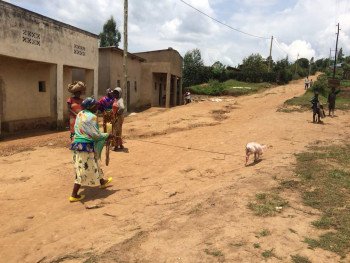
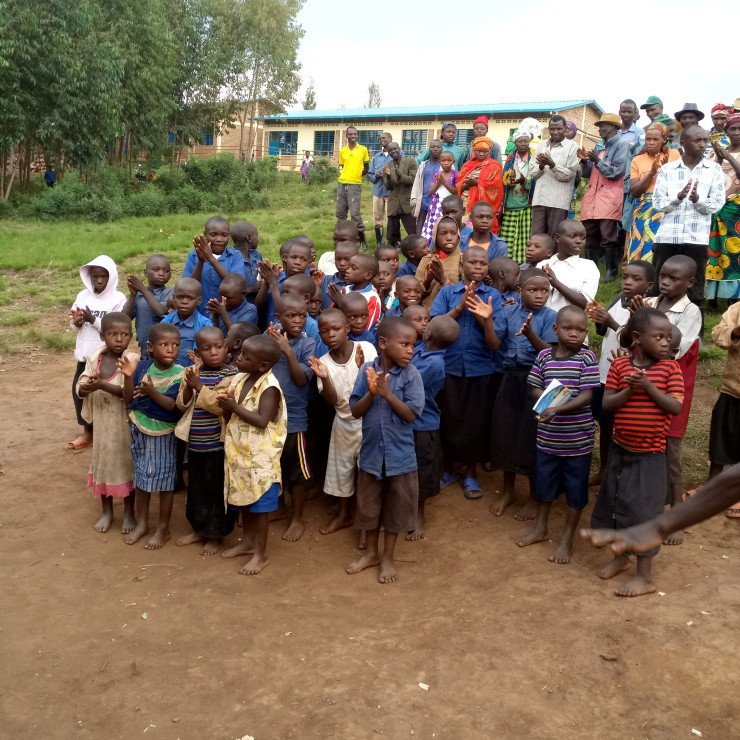
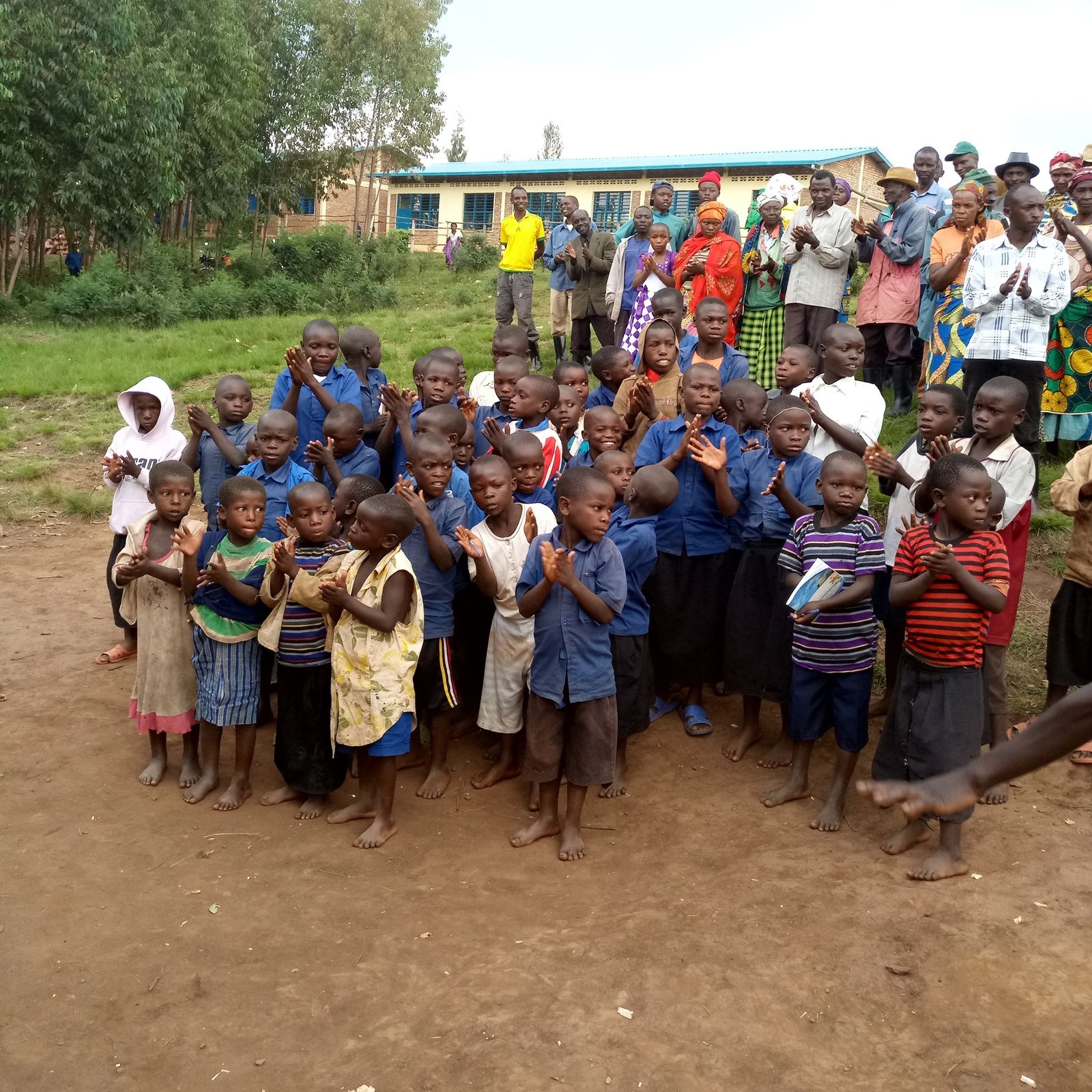
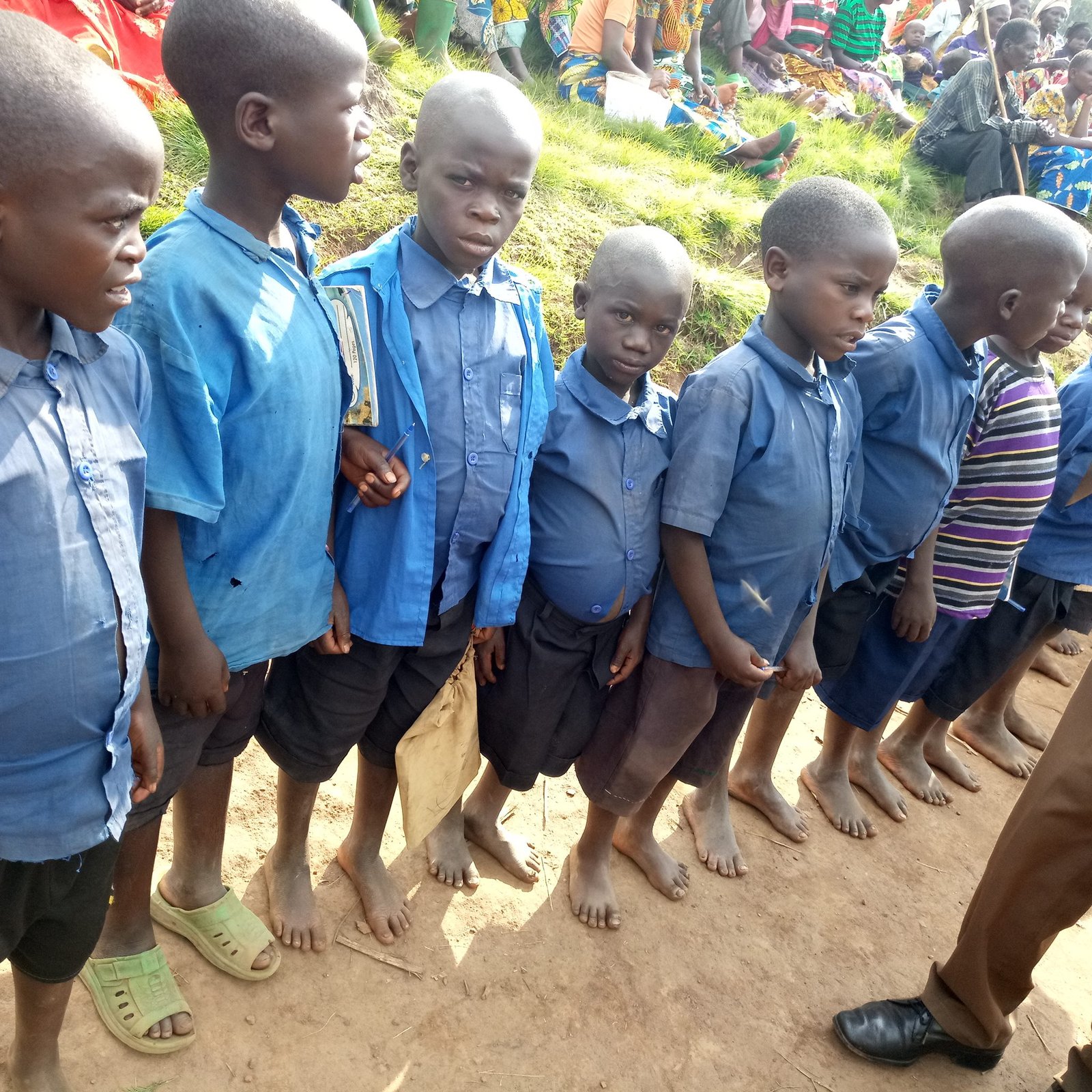
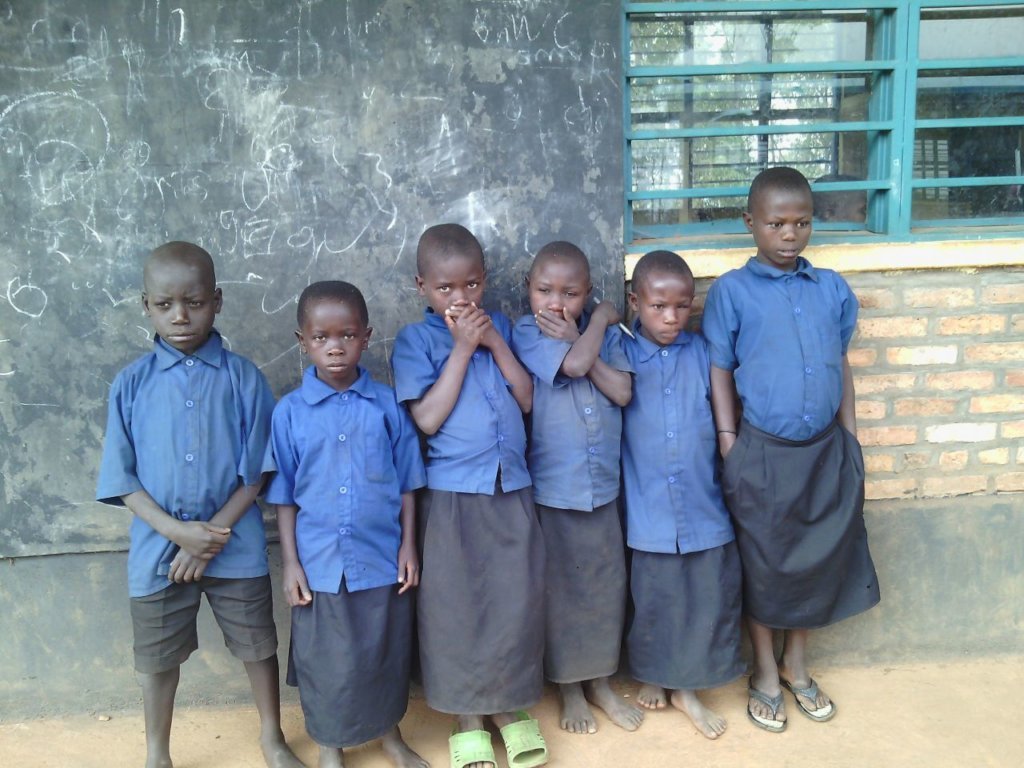
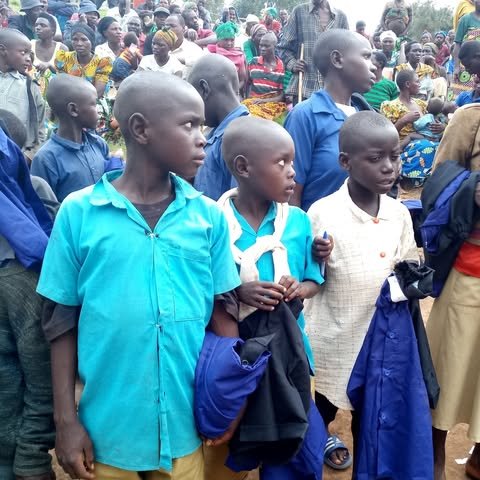

Comments (0)